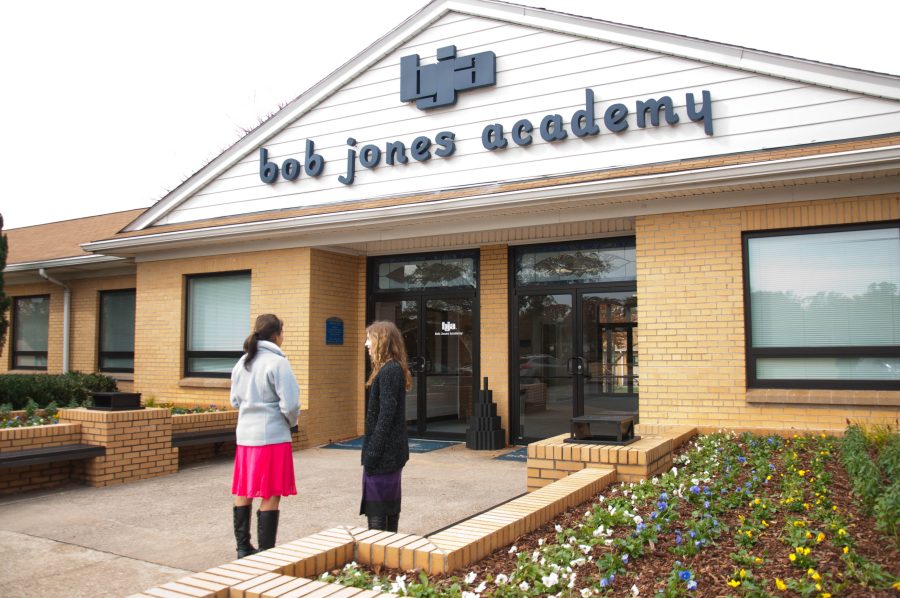For many Bob Jones University students, the Bob Jones Academy section of the campus is an unknown world; some students don’t even know that the largest Christian school in South Carolina exists on our campus.
What you also may not know is that 70-80 percent of academy graduates choose to attend BJU for college and have probably sat next to you in a class at some point. But what exactly is Bob Jones Academy, and why is it on the BJU campus?
BJA was founded in 1927 by Bob Jones Sr. at the same time he began Bob Jones College in Florida. The first year of classes consisted of 47 students in grades 7 to 12. The elementary school was added in the 1970s, and the many divisions of education, like Bob Jones Elementary School and Bob Jones Middle School, were all combined under the name Bob Jones Academy in 2011.
Unlike most other schools, BJA sits on a college campus and can benefit from the University’s resources. The biggest way academy students benefit from going to school on a college campus is the opportunity to enroll in dual credit courses at no extra charge. They can take a college class, like History of Civilization or French, and count it as a fulfillment for both a high school requirement and college credit.
Academy students also have access to the Mack and Music Libraries, the fitness centers, fine arts events, and music lessons and classes taught by university faculty. They also have the opportunity to use the Davis Field House fields and courts for tournaments. And, for safety, the BJA students benefit from having Public Safety on campus 24/7.
Academy students are also required to attend university chapel services twice a week. BJU’s chapel services allow the academy students to hear speakers that the academy would not be able to bring in on its own.
“We like that the students can be tied into [the chapel services] and have a clue of what’s going on in the University,” said Dr. Esther White, BJA’s assistant administrator and guidance counselor. “We want them to know Dr. Pettit. They get to hear him regularly and benefit from the spiritual teaching.”
University students benefit from having BJA on campus, as well. Multiple students have on-campus jobs as teacher’s aides, receptionists, lab assistants and gym monitors. And education majors have the opportunity to complete classroom observations and participate in reading groups in classrooms.
With this mutually beneficial relationship, the transition from BJA to BJU is seemingly natural, but White said it still requires an adjustment period.
“The hardest thing for them is understanding that it’s a different world,” White said.
To help differentiate their experiences at BJA from University life, many academy graduates who live near campus choose to live in the residence halls for at least a year to have the full “college experience.”
“Many will defend the [residence halls] as a good experience,” White said. “You have a different focus while you’re there than if you were home.”
For more information on Bob Jones Academy please visit bobjonesacademy.net.





















































